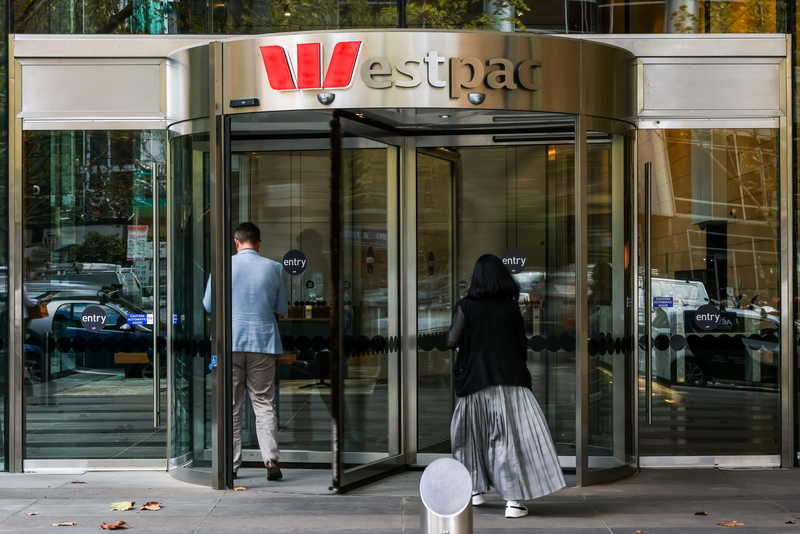The Australian Westpac Banking Corporation has been found guilty of engaging in unconscionable conduct, and ordered to pay the maximum penalty of A$1.8m ($1.2m) after contravening section 12CB of the ASIC Act. Westpac will also pay an additional A$8m ($5.3m) to cover ASIC’s litigation and investigation costs.
The unconscionable conduct occurred in October 2016, when Westpac was executing a A$12 billion ($7.9 billion) interest rate swap transaction and was found pre-hedging with a Consortium comprising AustralianSuper and IFM entities.
“This is a significant outcome which assists to clarify expectations regarding pre-hedging, particularly around disclosure and consent where the pre-hedging can have a detrimental impact on the counterparty to the transaction,” said ASIC Deputy Chair Sarah Court.
Conduct for pre-hedging
The interest rate swap, which was the largest of its kind in Australia’s financial market history, was related to managing interest rate risk connected with the Consortium’s purchase from the NSW Government of a majority stake in the electricity provider Ausgrid.
“Appropriate conduct for pre-hedging is an issue of global significance. In this case, Westpac’s behaviour was unconscionable and exposed its client to significant risk. Westpac’s conduct was also in stark contrast with several other banks,” Court added.
The Federal Court stated that Westpac’s conduct was unconscionable because:
- it was aware of the client’s concern about trading prior to the swap transaction (pre-hedging) – which could potentially have the adversely affect the price of the swap transaction to their detriment. Every basis point increase to the price of the swap transaction would bring a cost to the Consortium of about A$4.7m ($3.1m);
- despite the concerns, Westpac still pre-hedged up to 50% of the interest rate risk by trading in significant volumes of interest rate derivatives in the market before the swap transaction was made;
- it failed to get consent from clients, or to provide clear and complete disclosure about the planned pre-hedging; and
- once Westpac initiated its pre-hedging trading, the Consortium could not protect itself against the risk that Westpac’s trading would increase the price of the swap transaction.
On the day of the swap, Westpac’s derivatives trading desk gained a trading profit of about A$20.7m ($13.7m), of which A$3.7m ($2.4m) was allocated as commission to the Sales team.
“If pre-hedging is not carried out in an appropriate manner it can be unfair, unconscionable and result in poor client outcomes,” Court added.
“Appropriate conduct for pre-hedging is an issue of global significance. In this case, Westpac’s behaviour was unconscionable and exposed its client to significant risk.”
ASIC Deputy Chair Sarah Court
Since 2016, civil penalties have increased significantly for breaching the ASIC Act, and if Westpac would have made the conduct today, the fine (for a corporation) would had started from at least A$15.65m ($10.33m). For a large entity, the maximum penalty may potentially be A$782.5m ($516.5m) or three times the benefit derived.
Other Westpac charges
In September last year, Westpac was also sued for failing to respond to customers’ hardship notices within the required time.
Allegedly, between 2015 and 2022, a deficiency with the bank’s online hardship notice process resulted in 229 customers not receiving a response to their hardship notice within the required timeframe of 21 days.
And in April 2022, Westpac was ordered to pay penalties totalling A$113m ($73.6m) for widespread compliance failures across multiple businesses, including Westpac’s banking, superannuation, wealth management and insurance brands over:
- Fees for no service – deceased customers – A$40m penalty: During a 10-year period, over A$10.9m in advice fees was charged to over 11,800 deceased customers for financial advice services they did not receive.
- General insurance – A$15m: Duplicate insurance policies were sent to over 7,000 customers for the same property, including 3,899 customers since November 30, 2015 – which resulted in customers having to pay for two (or more) insurance policies. Insurance policies to 329 customers were also receiving insurance policies which they had not consented to entering into.
- Inadequate fee disclosure – A$6m: Westpac, Securitor and Magnitude (advice businesses) charged retail customers for ongoing contribution fees for financial advice without properly disclosing those fees. At least 25,000 customer accounts were affected.
- Deregistered company accounts – A$20m: Westpac allowed approximately 21,000 deregistered company accounts, holding A$120m, to remain open and charged fees for it. “Westpac allowed funds to be withdrawn from these accounts that should have been remitted to ASIC or the Commonwealth.”
- Debt onsale – A$12m: Consumer credit card and flexi-loan debt were sold to debt purchasers with incorrect interest rates, where more than 16,000 customers were overcharged.
- Insurance in super – A$20m: Westpac subsidiary, BT Funds Management, charged members insurance premiums that included commission payments even though commissions were banned under the Future of Financial Advice reforms. Some members also paid for services that they had removed from their accounts. Over 9,900 BT Funds members were affected.
“Over the course of 13 years, more than 70,000 customers have been affected by these failures, either by being incorrectly charged or given the wrong information. The sheer scale of this impact suggests that, at the time, Westpac had a culture that did not prioritise compliance,” Sarah Court concluded.















